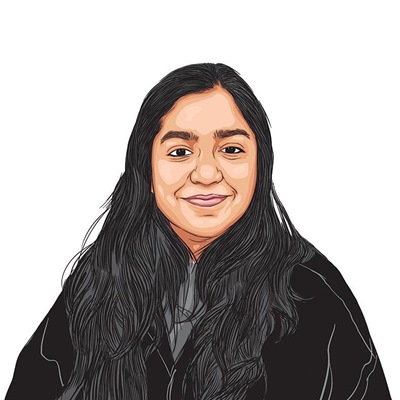Opinion View from Pakistan: India’s alleged assassination plot and PCB’s Salman Butt controversy
A weekly wrap-up of the issues being discussed and debated in India’s neighbourhood
 Khalistan separatist Gurpatwant Singh Pannun. (File)
Khalistan separatist Gurpatwant Singh Pannun. (File) Salman Butt is out
A day after he was appointed as one of three consultants to chief selector Wahab Riaz, former cricketer and captain Salman Butt was removed by the Pakistan Cricket Board amidst heavy criticism. Butt is infamous for his spot-fixing scandal in 2010 when the Pakistan team played England in a Test match at the Lord’s cricket stadium. He served a prison sentence in the UK and was banned from the International Cricket Council for 10 years.
Riaz asked people to “move on” and said that there was “undue criticism from media houses”, to which Dawn (December 3) says, “Perhaps the chief selector did not understand that it is not easy to do so, especially with the appointment of a man whose actions brought shame to Pakistan cricket and hurt the sentiments of many ardent fans. For that act, there can be no way back.”
Daily Times (December 3) says, “Pakistan’s cricket team is in no shape to give space to any notorious personality in its inner circle… If the scandals of his past were actually as meaningless as being portrayed by some key officials, why was Mr Butt never called upon to represent Pakistan internationally even after he had served the ban?”
Pannun’s alleged assassination plot
Earlier this week, the US revealed the details of Indian citizen Nikhil Gupta who seemingly conspired, upon instruction from “an Indian government employee”, a “senior field officer”, to assassinate a US citizen of Indian origin, reported to be Gurpatwant Singh Pannun — a Sikh separatist and a senior person in the rights group, Sikhs for Justice.
According to The Nation (December 1), “The involvement of a country in activating all the illegal means to achieve its goal is not just disappointing but is an infringement on the rights and freedoms of people.” It calls for an investigation because “this is not an isolated incident… The impunity with which India believes it can silence dissent the world over must be put a stop to.”
Express Tribune (December 1) says, “Growing evidence of India’s involvement in overseas assassinations of Sikh separatists and other dissenters shows that R&AW has taken a leaf out of the playbook of Mossad, the infamous intelligence agency of Israel.” It asks Western nations to not ignore “India’s ‘death squads’” as that “would undermine their ‘rules-based world order’ by posing major risks to national security.”
Pakistan at COP28
The 28th United Nations Climate Change Conference (COP28) began in Dubai on November 30 and will continue until December 12. Around 200 countries were invited to attend the meeting. With 2023 set to be the hottest year in history, world leaders have their work cut out. News International (December 1) focuses on the overall expectations from this conference while The Nation (November 30) speaks to Pakistan’s stake this year.
News International (December 1) says, “COP28 will also allow rich countries to share the progress made regarding the much-appreciated Loss and Damage Fund… it is important for the developing world to hold rich nations accountable and ask them why they have not done anything about rebuilding countries that have been massively affected by climate-induced disasters.”
The Nation (November 30) says, “Pakistan’s case compelled the world to adopt the ‘Loss and Damage’ fund in last year’s COP27. After making headlines for a few weeks, the fund was lost to global neglect, a lack of sufficient donors, and some other technical complexities in implementation.”
This year, “for Pakistan, the COP28 will be a chance to remind the world of what it owes to the countries who unjustly pay the price of excessive carbon emissions by some.”
World AIDS Day
World AIDS Day is held on December 1 every year. With Pakistan experiencing a constant rise in cases — according to UNAIDS data, the number of HIV/AIDS cases has risen from 75,000 in 2010 to 270,000 in 2022 — this is a reminder to ensure that stigma and socio-economic status do not discourage people from seeking treatment.
Express Tribune (December 1) says, “Access to healthcare and treatment remains a privilege rather than a universal right… Targeted interventions are needed for high-risk populations, including sex workers, injecting drug users and men who have sex with men. Governments must prioritise policies that address social determinants of HIV transmission, ensuring that vulnerable communities receive the support they need.”
News International (December 2) says, “In the case of HIV/AIDS the world has benefited from greater access to treatment, more testing, and more education to attain a 38 per cent decline in new HIV infections since 2010.”
But for Pakistan, deaths from HIV/AIDS went up from 2,000 to 12,000 between 2010 and 2022. Therefore, “While targeted awareness campaigns among drug users and other populations most at risk of contracting HIV/AIDS will indeed help to reduce HIV transmission and help more people become aware of their status and access treatment, defeating this disease on a permanent basis will require broader measures.”
adya.goyal@expressindia.com






